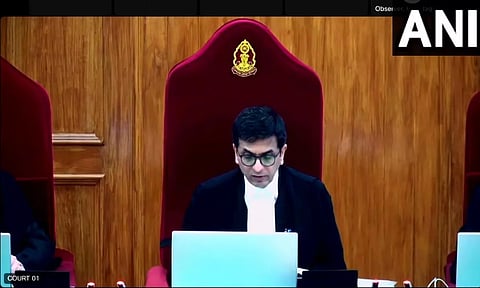

NEW DELHI: Pronouncing the verdict on pleas challenging the abrogation of Article 370 of the Constitution, Chief Justice of India (CJI) D.Y. Chandrachud on Monday said the Supreme Court need not adjudicate on the validity of the President’s rule imposed in Jammu & Kashmir in December 2018.
“The pleading of the petitioners indicate that the principal challenge is to abrogation of Article 370 and whether such action could have been taken during the President’s rule,” CJI Chandrachud said.
He added that even if the Supreme Court holds that proclamation under Article 356 could not have been issued, no material relief could be given in view of the fact that the President’s rule was revoked in the state in October 2019.
CJI Chandrachud is pronouncing the verdict on the batch of petitions challenging the constitutionality of the 2019 Presidential Order taking away the special status accorded to the erstwhile state of Jammu and Kashmir and its bifurcation into two Union Territories.
On September 5, a Constitution Bench, which included the five senior-most judges of the Supreme Court, had reserved its verdict after hearing oral arguments from both sides.
Earlier in March 2020, a five-judge Constitution Bench declined to accept the contentions of the petitioners to refer the issue to a larger bench of seven judges.
The 5-judge Constitution Bench, headed by then CJI N.V. Ramana, reasoned that the earlier judgments rendered by the top court in the Prem Nath Kaul case and the Sampat Prakash case, dealing with the interpretation of Article 370, were not in conflict with each other.